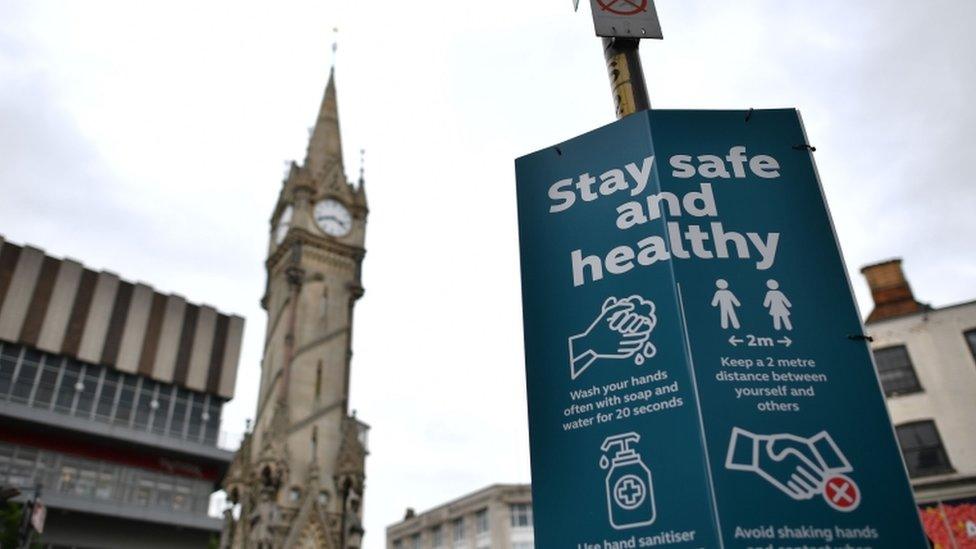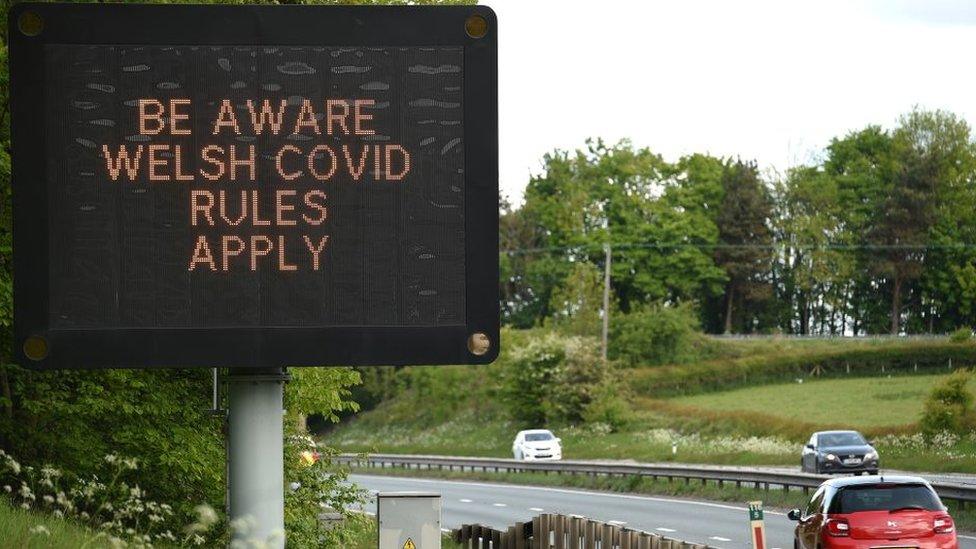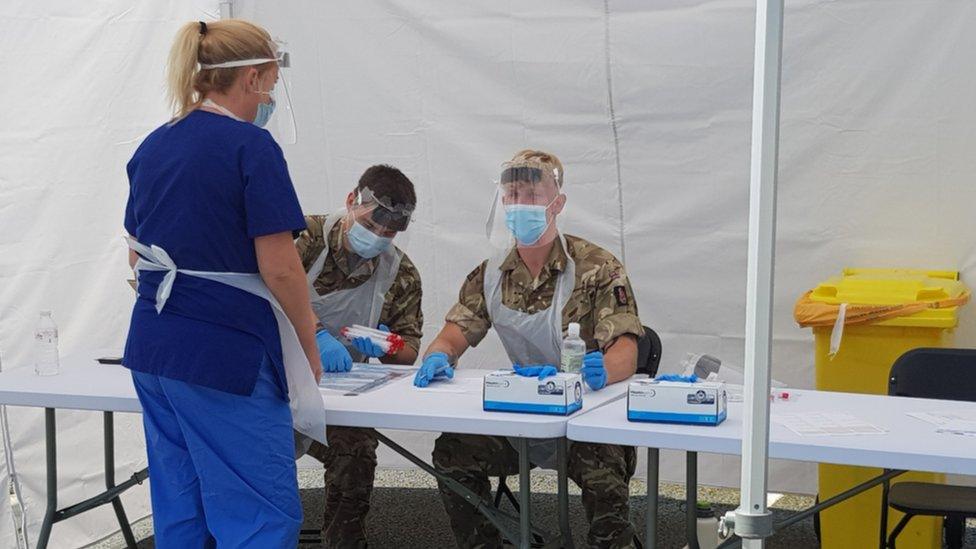Coronavirus in Wales: Lack of furlough 'barrier' to local lockdown
- Published

Leicester was the first part of the UK to see a local lockdown
The lack of clear furlough help for employees put out of work because of local lockdowns is a likely barrier to the public accepting them, a report has said.
Welsh Government advisers have spelled out some of the potential pitfalls with local coronavirus restrictions.
They warned the public may "lack motivation" in adhering to them.
Earlier a minister reiterated the Welsh Government would be willing to take local action to restrict the virus.
No local lockdowns have yet been implemented in Wales, although restrictions have been used across the border in Leicester and parts of north west England.
Wales' First Minister Mark Drakeford last week showed a preference for taking local measures to deal with a spike in cases, rather than returning to national restrictions.
The furlough scheme - where the UK government pays staff wages - is due to end in October, and is only available for employees furloughed before 30 June.

Welsh ministers want to avoid a further round of national restrictions
In its latest report, external the Welsh Government's Technical Advisory Cell (TAC), which provides scientific advice, said the phrase local lockdowns is "not helpful as it gives the impression of punishment and a restriction of liberty".
Instead TAC suggested the phrase "areas of intervention", and set out potential "barriers to public and community acceptance".
They included "the perception of contradictory messaging", when nationally restrictions are eased but locally reinstated.
Barriers include a "lack of clear support arrangements" compared "to initial national lockdown in March", the report said, giving "no clear furlough arrangements" as one of the examples.
It suggested "a lack of motivation to adhere" to local restrictions, if there is a perception that the lockdown approach has failed.
A sense that the intervention is arbitrary or discriminatory, where there is not clear support to address the effect of restrictions, could also lead to people questioning the changes.
Focusing on an area too narrowly or too widely could feel disproportionate, TAG warned, and undermine compliance.
It said that people not adhering to the restrictions could potentially erode "social cohesion", particularly "where the areas of intervention are perceived to be along racial/ethnic lines".
TAC recommended care should be taken to avoid the perception that lockdown is "punishment", and policies should consider how proportional the area affected is.
'Ring-of-steel' if communities see spikes
International Relations Minister Eluned Morgan said the Welsh Government will put a "ring of steel" around areas where incidents of coronavirus do arise, following the reopening of tourism.
"It is important that we continue to welcome all visitors to Wales," she said. "We have to ensure that we continue that Welsh warm welcome that people have become used to," she said.
"Of course, if we do see any incidents, we will expect those visitors to report that they are feeling unwell, that they report and participate in the test track and trace process, and of course when we see those incidents arising, we will lock down very hard on those instances and try and put a ring-of-steel around those areas so that we don't see the spread of the virus in those communities."
- Published30 July 2020
